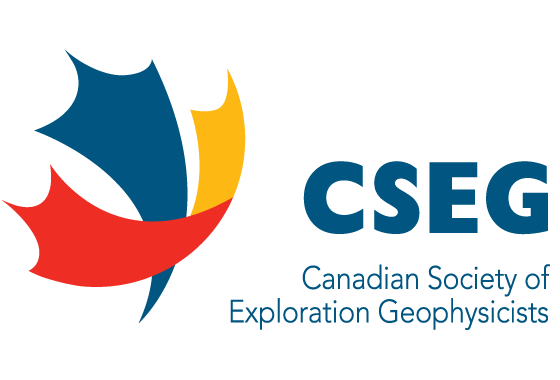John Bancroft - 2005
CSEG Honorary Membership Award Citation for John Bancroft
by Robert Stewart
 Whether searching the horizon for other aircraft or seeking subsurface anomalies via migration, Dr. John Bancroft is an enthusiastic and talented explorer. His many gifts and generous application of them to our geophysical community make him a fine recipient of the CSEG's 2005 Honorary Membership Award. John's formal education included degrees in Electrical Engineering from the University of Calgary and a Ph.D. in Electrical Engineering from Brigham Young University in 1975. He immediately applied this background to research and development efforts at the National Institute for the Deaf and Rochester Insititute of Technology in New York State. In this capacity, he was responsible for hardware acquisition and software development in a research lab analysing speech and hearing for the deaf. His associated research activities included measurements of rough speech, pitch variations, airflow and lung volume measurements, cochlea implant simulation and design, and voice-controlled video games!
Whether searching the horizon for other aircraft or seeking subsurface anomalies via migration, Dr. John Bancroft is an enthusiastic and talented explorer. His many gifts and generous application of them to our geophysical community make him a fine recipient of the CSEG's 2005 Honorary Membership Award. John's formal education included degrees in Electrical Engineering from the University of Calgary and a Ph.D. in Electrical Engineering from Brigham Young University in 1975. He immediately applied this background to research and development efforts at the National Institute for the Deaf and Rochester Insititute of Technology in New York State. In this capacity, he was responsible for hardware acquisition and software development in a research lab analysing speech and hearing for the deaf. His associated research activities included measurements of rough speech, pitch variations, airflow and lung volume measurements, cochlea implant simulation and design, and voice-controlled video games!
This signal processing and acoustic work took a geophysical turn when John came back to Calgary and joined Geo-X Systems Ltd., where he subsequently became the Director of Research. At Geo-X, he led the seismic R. & D. endeavours contributing to Geo-X' 3-D seismic acquisition and processing packages, field layout and modeling software, 3-D migration, and 3-D color perspective displays. John next physically migrated to another leading geophysical organization when he joined Veritas Seismic in Calgary – where he again rose to research prominence. In 1994, we in the CREWES Project at the University of Calgary were fortunate to have John come onboard as a Senior Research Geophysicist. John applied his imaging expertise to converted waves, VSP, and a host of other problems and became an Adjunct Professor in the Department of Geology and Geophysics - a position in which he continues to excel. John has written and spoken extensively on matters of seismic data processing and analysis. Subjects such as, "Pre-stack migration by equivalent offsets and CSP gathers", "DMO processing for mode-converted waves", "Steep-dip Kirchhoff migration for 3-D linear velocity gradients", "Tutorial on Static Estimation Using Surface Consistent Methods", "The use of Median Filters in the Synthesis of Seismograms from Well Log Data" are classic talks that he has delivered. Much of this work is now immortalized in his two-volume SEG tome (some 800 pages!) entitled, "A Practical Understanding of Pre- and Post-stack Migration". John has widely communicated his findings in other forums as an invited or keynote speaker – giving presentations to the Houston Geophysical Society, Memorial University, the Bahrain Land Imaging Forum, Curtin University and CSIRO, Perth Western Australia, and at Geo2000 in New Delhi, India. As a result of these presentations, he has won a number of best paper and honourable-mention awards at the CSEG, SEG, and Australian SEG (the "down-under" recognition was especially meaningful as John lived for a period in Perth, Australia). John has graduated more than 10 M.Sc. and Ph.D. students, most who are well along their ways in the hydrocarbon industry. He currently has 10 more graduate students proceeding with their degree work. John participates in many of the University's less visible tasks such as reviewing students' thesis proposals, conducting examinations, and participating in Defences.
John and I co-instruct a large course at the University on Natural Disasters and I am constantly impressed by his curiosity, interest in the students, and dedication to fairness. We also have some experience togther in the human side of calamity. This concerned a trip to the Middle East and a Petroleum Conference in Bahrain. The trip had a certain foreboding as we first lost our luggage and CREWES booth due to a fire in the Frankfurt airport (we recovered our baggage some days later). On arrival in Bahrain and the Conference, we found few attendees in the rather barren convention centre. We later discovered that there had been a bombing in a neighbouring hotel that had become known to the other conference cognesceti, but not us. Undeterred nonetheless, we travelled on to Cairo with plans to investigate a site in southern Egypt for some geotechnical surveys. When we arrived at our hotel in the downtown, we found it cordoned off due to another, in this case tragic, terrorist episode. John retained his sense of calm in the midst of this turbulence and we did venture into southern Egypt to reconnoiter possible survey sites (John later returned to Calgary, while I continued on to London – but after being sequestered in the "Tube" due to an IRAbomb threat, I decided to return home, too).
John's service to the CSEG is long-standing: He has written a number of articles for the RECORDER magazine including Expert Answers and reviews. He participated on the 2004 CSEG Technical Committee and has chaired a number of CSEG Convention sessions. He has been a pillar of the CSEG's very successful DoodleTrain Educational Week, regularly teaching his course on migration and inversion. John has also provide to service to a broader community setting geophysics exams for APEGGA and being a Steward at their Ring Ceremony. He has taken Canadian geophysics to the world with extensive contributions to international teaching. He is active in community organizations as a Scout Leader and volunteer for the Heart and Stroke Fund. John is married to Faye and they have six children. With all of this, he still manages to be an excellent instructor, talented scientist and engineer, and a strong believer and performer in our geophysical community. We often smile as John, with his full set of family and professional commitments and a beeping Palm Pilot, conscientiously looks at where he's needed next.

2005 CSEG Honourary Membership Award for John Bancroft
(L to R: John Bancroft, Doug Uffen (Chair for the 2005 CSEG Honours and
Awards Committee) and Rob Stewart who read out the citation highlighting
John's contributions)




